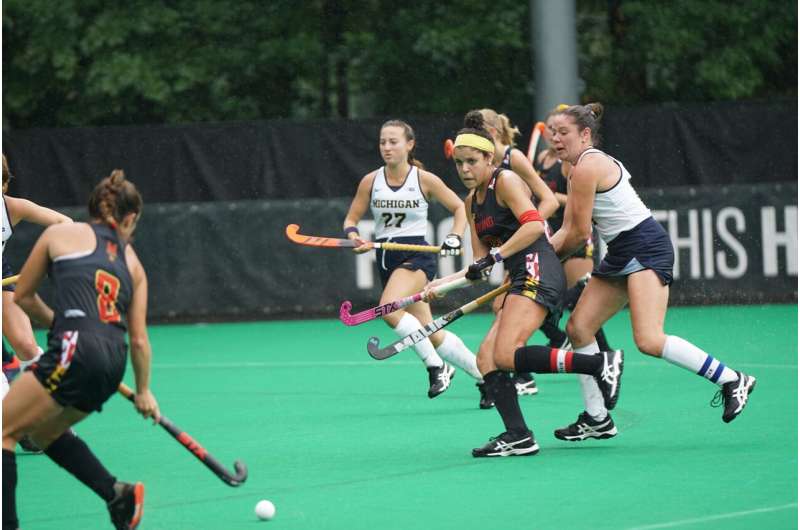Athletes who exercise too much self-control could hinder their performance

Sports scientists at Nottingham Trent University found that the more self-control field-hockey players were required to exert the worse their performance became, with their dribbling, passing and shooting skills all affected.
Self-control refers to athletes' attempts to control their behaviors, emotions and thoughts in order to pursue their goals and relates to resisting overriding impulses or temptations.
It is often linked to positive outcomes in sport and exercise performance and could include anything which might require them to fight their natural urges.
This could be exercising control over diet before competing, resisting the temptation to watch TV in order to train instead, or having to put on a different persona to undertake media interviews.
While competing examples might include not allowing themselves to be influenced by the crowd or resisting the urge to let their attention wander when they start to sense victory.
Participants took part in a series of cognitive function tests which required self-control as they had to resist their automatic responses. This involved having to respond with the color a word was written in, rather than the color word itself—so if the word 'green' was written in blue font, then blue was the correct response.
Immediately after this they were required to perform a hockey skills task which also required self-control behaviors for the regulation of attention, emotions, and motor skill execution.
Participants had to dribble around cones, make a pass against a rebound board and then shoot to the opposite side of the goal they were instructed to—repeating this six times over four sessions, with a 90 second rest in between each session.
The researchers found that overall there were 24% more errors made in the hockey skills task by participants following self-control exertion, than when they performed the skills task without the self-control test.
Whilst participants did not make any more errors at the start of the hockey task, it gradually increased to 40% more errors towards the end of the task. This shows that self-control is particularly important for skills performance towards the end of a match, the researchers say.
"Our findings suggest that self-control exertion can have a negative effect on sporting skill performance, possibly as a result of poorer sustained attention and a lack of ability to focus on the task at hand," said lead researcher Dr. Ruth Boat, a sport and exercise scientist in Nottingham Trent University's School of Science and Technology.
She said: "In our study performance time didn't alter but accuracy did, which shows the impact of self-control on the accuracy of skills performance specifically.
"As they learn a skill, however, it will require less self-control on the part of athletes. Our work suggests that athletes and their coaches could aim to avoid over-exerting self-control before a competitive match in order to optimize their performance, perhaps learning to manage this through certain interventions.
"It's important to think of self-control as like a container, athletes can take so much until it eventually runs out and this will become detrimental to their skill performance."
The research is published in the Scandinavian Journal of Medicine and Science in Sports.
More information: Ruth Boat et al, Detrimental effects of prior self‐control exertion on subsequent sporting skill performance, Scandinavian Journal of Medicine & Science in Sports (2021). DOI: 10.1111/sms.14011




















